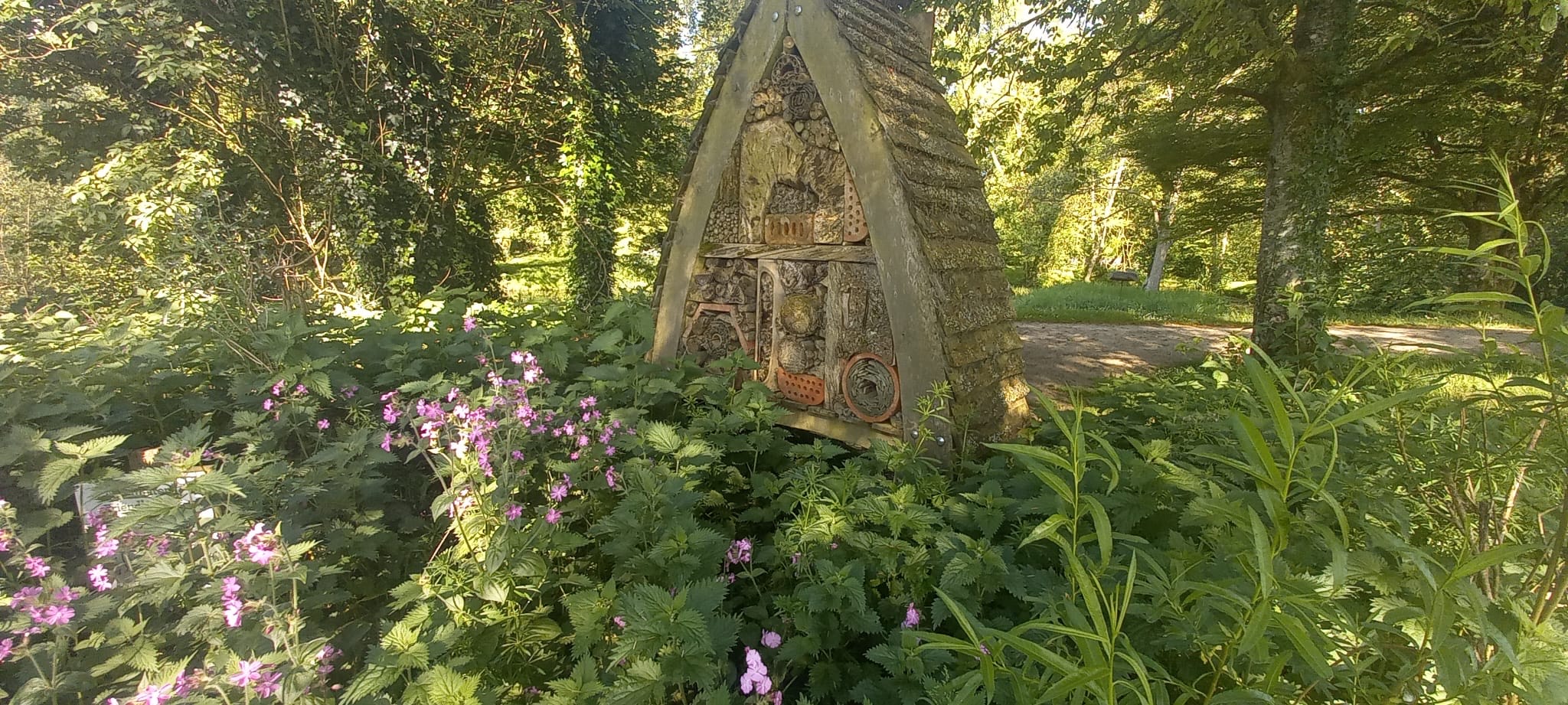
As it’s biodiversity week, I thought I would focus a little on this.
Biodiversity is a variety of living things that inhabit an area, this would include animals, plants, trees, birds, insects and fungi. Due to the increase in population and urbanisation, this has all had a detrimental impact on biodiversity. The largest impact on the future of biodiversity is on our pollinators, who are incredibly important for our foods sources like fruit and vegetables. A pollinator is anything that helps to carry pollen from the male part of a flower to the female part of the same or another flower, the movement of pollen must happen for the plant to become fertilised to bear fruits and seeds.
Over the twenty five plus year life span of St Fiachra’s Garden it has become a biological diverse area within itself. Particularly in the last number of years, I feel I have managed to find a balance in the garden for both the wildlife to thrive, but also give an experience that the visitors can appreciate. This has also been assisted by my colleague Paul Farrell who has divided and resewn some of the wild flowers for example snowdrops, bluebells, winter aconites and cyclamen etc.
In St. Fiachra’s, there are numerous pollinators including mammals, birds and insects, but the hardest working pollinators are the insects. Bees, moths, wasps and butterflies are allowed to do what they do best in the naturally wild areas throughout the garden and the small islands on the lakes. The common nettle, an invasive weed that carries an irritating sting is encouraged to grow around the bug hotel, it has a dual function of allowing insects to lay eggs on it’s leaves, like our lesser known pollinator the moth but it can also act as a deterrent to the bug hotel being disturbed. A simple element that requires no planning or maintaining are the dandelions and even the briars which can act like a superfruit for the bees, so in St. Fiachra’s I avoid where possible cutting the dandelions in the grass and leave the briars to grow in the more natural areas.
Looking to the future I hope to preserve what’s been accomplished and build on more ideas within the garden to assist with biodiversity.
HAVE A QUESTION?
Drop a Line
Address
Irish National Stud & Gardens,
Brallistown Little, Tully, Co. Kildare,
R51 KX25, Ireland
